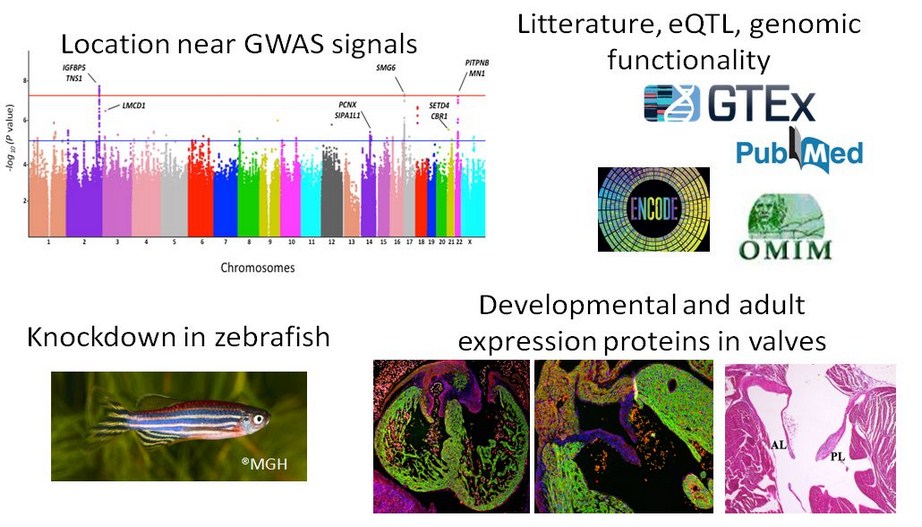Projects
Mitral valve prolapse (MVP), common cause of valve repair and cardiac death)
Mitral valve prolapse (MVP) is a common cardiac valve disease that affects nearly 1 in 40 persons in the general population. MVP result in regurgitation with fatigueis a frequent cause of valve repair or replacement and most importantly heart failure and sudden cardiac death.
By the investigation of the genetics in families and large cohorts of patients we have identified novel genetic predisposing factors. Recent collaborative studies involving an International Transatlantic Leducq Network allowed us to support the role of DCHS1 involved in cell polarity in MVP. On the other hand, our first GWAS of MVP identified six risk loci and provide functional evidence from mouse and zebrafish models, for strong candidate genes. We highlight LMCD1 encoding a transcription factor, for which morpholino knockdown in zebrafish results in atrioventricular (AV) valve defect with regurgitation. A similar zebrafish phenotype was obtained for tensin1 (TNS1), a focal adhesion protein involved in cytoskeleton organization. We also show the expression of tensin1 during valve morphogenesis and describe enlarged posterior mitral leaflets in Tns1-/- mice (Dina, Bouatia-Naji et al., Nat Genet 2015).
Current efforts are dedicated to identify the causative variants and assess their impact on gene regulation and/or function to support their candidacy as therapeutic targets to prevent valve degeneration. The genetic study of pathways and exome sequencing in families is expected to complement our knowledge about the genetic origin and physiopathology of MVP.
